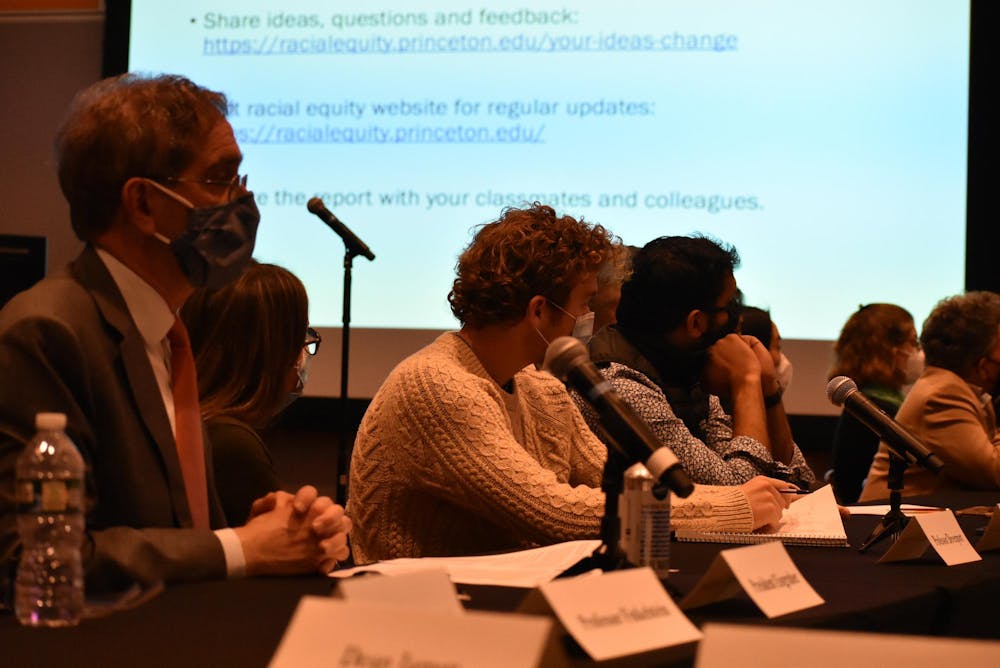The following is an open letter and reflects the author’s views alone. For information on how to submit a piece to the Opinion section, click here.
To the Members of the Council of the Princeton University Community (CPUC):
In 1970, Princeton University created the CPUC as a culmination of two years of work by the Special Committee on the Structure of the University. In the preface to its final report, that committee said of the new body: “Both directly and through representatives, more people will participate in decisions on a wider range of issues, and it will be easier to raise issues, to get a hearing, to win the support of others, and to gain access to those formally responsible for making decisions.”
We, the undersigned members of the Princeton University community, earnestly petition for the CPUC to adopt this revised version of its annual “Resolution on the Order of Business” for the 2024-2025 academic year. The reforms proposed here will enable the CPUC to better fulfill its aforementioned founding goals of broad participation in University governance. Further, these reforms will aim to hold the CPUC to a higher standard of accountability regarding its charter responsibility of “consider[ing] and investigat[ing] any question of University policy, any aspect of the governing of the University, and any general issue related to the welfare of the University.”
We principally believe that our proposed reforms are necessary to correct certain policy changes to the CPUC meeting procedures instituted in 2019. These changes severely undercut the CPUC’s ability to hear — and more pertinently to address — questions and concerns from the University community. Aside from representing a departure from long-standing practices, these 2019 measures mandated that only 15 minutes per meeting be relegated to topics not already placed on the agenda by the CPUC Executive Committee. While this time cap had existed in writing for some time, former Provost Deborah Prentice acknowledged that such stipulations regarding the council's question period had not been practiced in “anybody’s living memory”.
These changes to CPUC meeting procedures had the immediate effect of enabling the Executive Committee to regulate both the number and the subject matter of questions that could come before the CPUC. That year, The Daily Princetonian’s Editorial Board emphasized this same concern while also deploring the new measures’ adverse impact on “open conversation.”
Our proposed reforms do not seek to restore the past “open question period” policy. They maintain the requirement that questions not on the CPUC agenda be submitted in writing in advance of the meeting.
Instead, our new reforms clarify that any member of the Princeton University community (not just Council members) may submit these questions to the CPUC for consideration. We hope that this will act as a more explicit affirmation of the kind of whole community participation than is currently written. Further, these reforms provide that all properly submitted questions will receive a timely answer, either on the record at the CPUC meeting or in separate writing soon thereafter. We also believe that the CPUC should extend the duration of the Question Period from 15 minutes to 45 minutes, extending the overall meeting length from 90 minutes to 120 minutes. Finally, our reforms establish that properly submitted questions from University community members residing more than 50 miles from the meeting location should be addressed without the requirement of in-person attendance.

Adopting these proposed reforms will enhance transparency and accountability, as well as promote inclusive participation. A longer Question Period will ensure thorough and transparent discussions on matters affecting the University community and allow more questions to be heard. Allowing all community members to submit questions and facilitating remote participation ensures diverse perspectives are heard and considered, regardless of geographical constraints.
In addition to more meeting-specific changes, our petition also proposes an affirmation of timely and transparent responses. We ask the CPUC to provide written responses within ten days to all properly submitted questions that are not addressed during the CPUC meeting and mandate the prompt publication and maintenance of these written responses and the official record of the proceedings on the CPUC website for public access. The council should also affirm and reinforce the right of attendees to make and publish video, audio, and/or photo records of the CPUC meetings, in alignment with the CPUC Charter's commitments to freedom of publication and transparency.
Publishing written responses and permitting video recordings will create comprehensive records of proceedings, making information readily available to all stakeholders and fostering a better-informed University community.
These reforms reinforce Princeton University's commitment to freedom of expression and open dialogue, foundational to the pursuit of truth and collaborative governance. The CPUC Charter entrusts the Council with the responsibility to “consider and investigate any question of University policy, any aspect of the governing of the University, and any general issue related to the welfare of the University. . .” To effectively fulfill this mandate, the CPUC must operate with the highest standards of transparency, inclusivity, and accountability.

By implementing these reforms, the CPUC will strengthen its role as a deliberative body, better reflect the needs and voices of its constituents, and uphold the University’s principles of open and participative governance through the CPUC. We emphatically call on the CPUC to consider and adopt these reforms to foster a more engaged, transparent, and inclusive University governance. Fidelity to its founding principles and continuing duties mandates the CPUC to review and act on this petition.
Respectfully submitted,
Bill Hewitt ’74
Sergiu Klainerman, Eugene Higgins Professor of Mathematics
Stuart Taylor ’70
Jerry Raymond ’73
The signatories are listed here as of 12:19 a.m. EST on September 20, 2024. To view a full list of signatories, please see here. This document is periodically updated and monitored by the author of the letter. To sign the letter, complete and submit this form.








